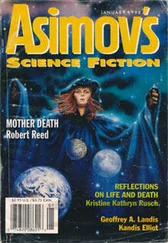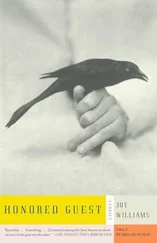Joy Williams - Taking Care
Здесь есть возможность читать онлайн «Joy Williams - Taking Care» весь текст электронной книги совершенно бесплатно (целиком полную версию без сокращений). В некоторых случаях можно слушать аудио, скачать через торрент в формате fb2 и присутствует краткое содержание. Год выпуска: 2010, Издательство: Vintage, Жанр: Современная проза, на английском языке. Описание произведения, (предисловие) а так же отзывы посетителей доступны на портале библиотеки ЛибКат.
- Название:Taking Care
- Автор:
- Издательство:Vintage
- Жанр:
- Год:2010
- ISBN:нет данных
- Рейтинг книги:5 / 5. Голосов: 1
-
Избранное:Добавить в избранное
- Отзывы:
-
Ваша оценка:
- 100
- 1
- 2
- 3
- 4
- 5
Taking Care: краткое содержание, описание и аннотация
Предлагаем к чтению аннотацию, описание, краткое содержание или предисловие (зависит от того, что написал сам автор книги «Taking Care»). Если вы не нашли необходимую информацию о книге — напишите в комментариях, мы постараемся отыскать её.
Taking Care — читать онлайн бесплатно полную книгу (весь текст) целиком
Ниже представлен текст книги, разбитый по страницам. Система сохранения места последней прочитанной страницы, позволяет с удобством читать онлайн бесплатно книгу «Taking Care», без необходимости каждый раз заново искать на чём Вы остановились. Поставьте закладку, и сможете в любой момент перейти на страницу, на которой закончили чтение.
Интервал:
Закладка:
Jenny runs to the car. Her father is not with her. He is behind her. Suddenly the child realizes this and whips around to catch him with her eyes. Once again, she succeeds.
Jenny’s mother is in the front seat, checking over her grocery list. Jenny kisses her and shows her the big, colorful watch. A tiny girl sits on a swing within the watch’s face. When Jenny winds it, the girl starts swinging, the clock starts to run.
Jenny sits in the back. The car moves out into the street. She hears a mother somewhere crying. Some mother, calling, “Oh come back and let me rock you on your little swing!”
Jenny says nothing. She is propelled by sidereal energies. Loving, for her, will not be a free choosing of her destiny. It will be the discovery of the most fateful part of herself. She is with a man. When he kisses her, he covers her throat with his hand. He rubs his fingers lightly down the tendons of her neck. He holds her neck in his big hand as he kisses her over and over again.
“Raisin Bran or Cheerios?” Jenny’s mother asks. “Cheddar or Swiss?”
Jenny is just a little girl. She worries that there will not be enough jam, not enough cookies. When she walks with her mother through the supermarket, she nervously pats her mother’s arm.
Now, at home, Jenny reads. She is precocious in this. When she first discovered that she could read, she did not tell anyone about it. The words took on the depths of patient, dangerous animals, and Jenny cautiously lived alone with them for awhile. Now, however, everyone realizes that she can read, and they are very proud of her. Jenny reads in the newspaper that that day in San Luis Obispo, California, a seventeen-year-old girl came out of a clothing store, looked around horrified, screamed, and died. The newpaper said that several years previous to this, the girl’s sister had woken early, given a piercing scream, and died. The newspaper said that the parents now fear for the welfare of their other two daughters.
Women suffer from the loss of a secret once known. Jenny will realize this someday. Now, however, she merely thinks, “What is the dread that women have?”
Jenny gets up and goes to her room. A stuffed bear is propped on her bureau. She takes it to the kitchen and gives it some orange juice. Then she takes it to the bathroom and puts it on the toilet seat for a moment. Then she puts it to bed.
Jenny wakes crying in the night and rushes into her parents’ room. She is not sure of the time; she is not sure if they will be there. Of course they are there. Jenny is just a child. On a bedside table are her mother’s reading glasses and a little vase of marigolds. Deeply hued, yellow, red and orange. Her parents are very patient. She is a normal little girl with fears, with nightmares. The nightmares do no real harm, that is, they will not alter her life. She is afraid that she is growing, that she will grow too much. She returns to her room after being comforted, holding one of the little flowers.
The man likes flowers, although he dislikes Jenny’s childishness. He removes Jenny’s skimpy cotton dress. He puts the flowers between her breasts, between her legs. The house is full of flowers. It is Mexico on the Day of the Dead. Millions of marigolds have been woven into carpets and placed on the graves. Jenny’s mouth hurts, her stomach hurts. Yes, the man dislikes her childishness. He kneels beside her, his hands on her hips, and forces her to look at his blank, warm face. It is a youthful face, although he is certainly no longer a young man. Jenny had seen him when he was younger, drunk, blue-eyed. It doesn’t matter. He doesn’t age. He has had other loves and he has behaved similarly with them all. How could it be otherwise? Even so, Jenny knows that she has originated with him, that anything before him was nostalgia for this. Even so, there are letters, variously addressed, interchangeably addressed, it would seem. These letters won’t be kept. It isn’t the time, but they are here now, in a jumble, littered with the toys. Jenny reads them as though in a dream. This is Jenny! As in a dream too, she is less reasonable but capable of better judgment.
I won’t stay here. It is a tomb, this town, and the streets are full of whores, women with live mice or snakes or fish in the clear plastic heels of their shoes. Death and the whores are everywhere, walking in these bright, horrible shoes.
How unhappy Jenny’s mother would be if she were to see this letter! She comes into the child’s room in the morning and helps her tie her shoes.
“You do it like this,” she says, crossing the laces, “and then you do this, you make a bunny ear here, see.”
Her mother holds her on her lap while she teaches her to tie her shoes. Jenny is so impatient. She wants to cry as she sees her mother’s eager fingers. Jenny’s nightie is damp and sweaty. Her mother takes it off and goes to the sink where she washes it with sweet-smelling soap. Then she makes Jenny’s breakfast. Jenny is not hungry. She takes the food outside and scatters it on the ground. The grass covers it up. Jenny goes back to her room. Everything is neatly put away. Her mother has made the bed. Jenny takes everything out again, her toy stove and typewriter and phone, her puppets and cars, the costly and minute dollhouse furnishings. Everything is there: a tiny papier-mâché pot roast dinner, lamps, rugs, andirons, fans, everything. The cupboards are full of play bread, the play pool is full of water.
Jenny’s face is tense and intimate. She knows everything, but how aimless and arbitrary her knowledge is! For she has only desire; she has always had only the desire for this, her sleek, quiescent lover. He is so cold and so satisfying for there is no discovery in him. She goes to the bed and curls up beside him. He is dark and she is light. There are no shadings in Jenny’s world. He is a tall, dark tree rooted in the stubborn night, and she is a flame seeking him — unstable, transparent. They are in Oaxaca. If they opened the shutters they would see the stone town. The town is made of a soft, pale green stone that makes it look as though it has been rained upon for centuries. Shadows in the shape of men fall from the buildings. Everything is cool, almost rotten. In the markets, the fruit beads with water; the fragile feathered skulls of the birds are moist to the touch.
The man sleeks her hair back behind her ears. She is not so pretty now. Her face is uneven, her eyes are closed.
“You’re asleep,” he says. “You’re making love to me in your sleep. Vete a la chingada. ” He says it slangily and softly, scornfully as any Mexican. She is nothing, nowhere. There is something exquisite in this, in the way, now, that he holds her throat. The pressure is so familiar. She yearns for this.
But he turns from her. He leaves.
Jenny pretends sleep. She plays that she is sleeping. She is fascinated with her sleep where everything takes place as though it were not so. Nothing is concealed. On stationery from the Hotel Principal there is written:
Nobody to blame. Call 228
She sits at a small desk, drinking beer and reading. She is reading about the Aztecs. She notes the goddess TLAZOLTEOTL, the goddess of filth and fecundity, of human moods, sexual love and confession. Jenny sits very straight in the chair. Her neck is long, full, graceful. But she feels out of breath. The high, clear air here makes her pant. The man pants too while he climbs the steep, stone steps of the town. He smokes too much. At night, when they return from drinking, he coughs flecks of blood onto the bathroom mirror. The blood is on the tiles, in the basin. Jenny closes her own mouth tightly as she hears him gag. Breath is outside her, expelled, not doing her any good. She stands beside the man as he coughs. There is not much blood, but it seems to be everywhere, late at night, after they have been drinking, everywhere except on the man’s clothes. He is impeccable about his clothes. He always wears a grey lightweight suit and a white shirt. He has two suits and they are both grey, and he has several shirts and they are all white. He is always the same. Even in his nakedness, his force, he is smooth, furled, closed. He is simple to her. There is no other way offered. He offers her the death of his sterility. His sexuality is the source of life, and his curse is death. He offers her nothing except his dying.
Читать дальшеИнтервал:
Закладка:
Похожие книги на «Taking Care»
Представляем Вашему вниманию похожие книги на «Taking Care» списком для выбора. Мы отобрали схожую по названию и смыслу литературу в надежде предоставить читателям больше вариантов отыскать новые, интересные, ещё непрочитанные произведения.
Обсуждение, отзывы о книге «Taking Care» и просто собственные мнения читателей. Оставьте ваши комментарии, напишите, что Вы думаете о произведении, его смысле или главных героях. Укажите что конкретно понравилось, а что нет, и почему Вы так считаете.












